Swiss teens and the body image problem
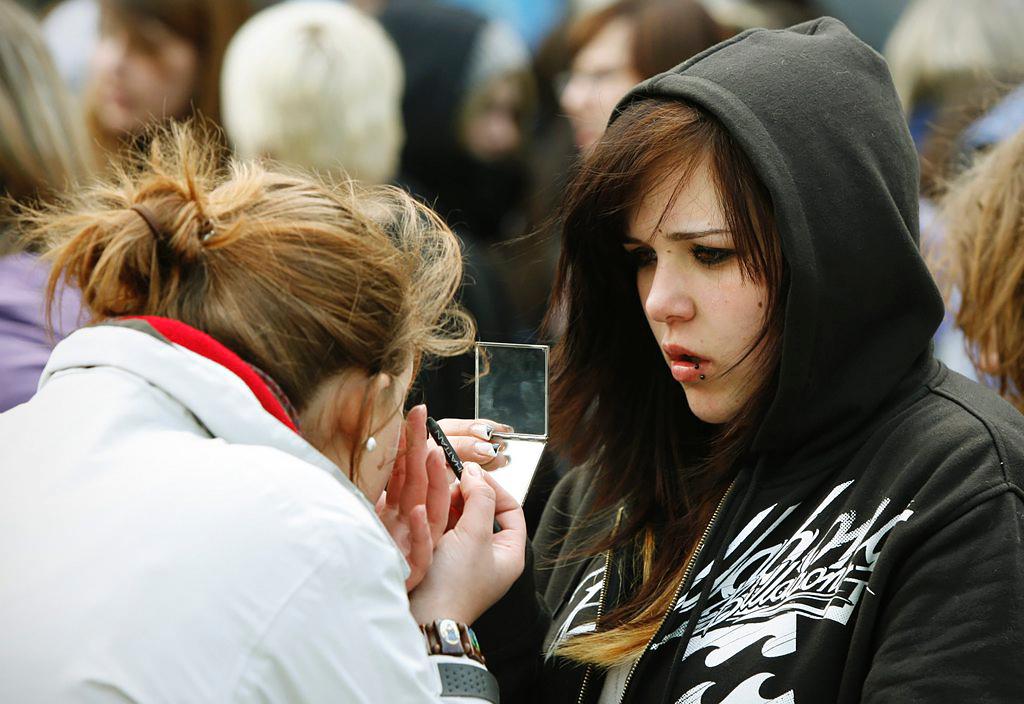
Is it possible to be happy with your body as a teenager? Less than 40% of Swiss teenage girls are pleased with the way they look. It’s a pattern that’s being repeated across Europe, increasingly leading to major psychological and physical side effects.
“I’m too small, I’m just 1.50m,” 15-year-old Yvorna, a student at the Kirchenfeld Gymnasium school in Bern tells swissinfo.ch. Like many young people her age she’s happy with the way she looks in some ways, and not in others. With long dark hair and wearing silver-sparkly shoes, Yvorna explains her idea of what makes up a positive body image. “I think simply just pleasing yourself is the key. When I stand in front of the mirror and I’m satisfied, then I’m happy!”
It’s a fairly positive attitude that the co-head of nutrition and exercise for Health Promotion Switzerland (HPS), Chiara Testera Borrelli, would like to see more of. She’s on a mission to make the Swiss feel good about themselves.
“We just want people to have a healthy lifestyle, to recognise the links between emotions and the body, and to accept themselves,” Testera Borrelli told swissinfo.ch.
HPS is funded with money from the health insurance system to combat a worrying trend of low body confidence among young people.
It’s a cause for concern because the impact of these body concerns, if they become excessive, can be huge. “Low self-esteem is a gateway to depression and anxiety,” says psychologist Martin Persson from the Centre of Appearance Research at the University West of England. “People with low self-esteem can [get] eating disorders or start smoking to suppress appetite, this leads to an impact on your physical health, or your sexual health, or you start under- or over-exercising…there’s a lot going on.”
Addressing the problem of unrealistic body image in Switzerland is part of a long-term project running up to 2018, HPS aim to reach children from a very young age, in pre-school, encouraging them to learn about the body and their feelings, mostly through songs and play.
When it comes to adolescents, HPS works with PEP (the specialist department for the prevention of eating disorders at Bern University Hospital) to run workshops in schools, encouraging “critical” thinking surrounding the messages young people receive from their peers, their family and the media.
Acceptance
Although questioning how you look and how you treat your body is a normal part of the teenage experience, over exposure to unrealistic images and unhealthy body ideals is now dramatically changing the way young people see themselves.
“We know that mental health wellbeing is becoming more and more difficult as the years go on in Europe,” says Perrson. “Social media has exploded so much over the past ten years with Facebook, twitter and Instagram, teenagers are much more exposed to these images and the comments that come with them.”
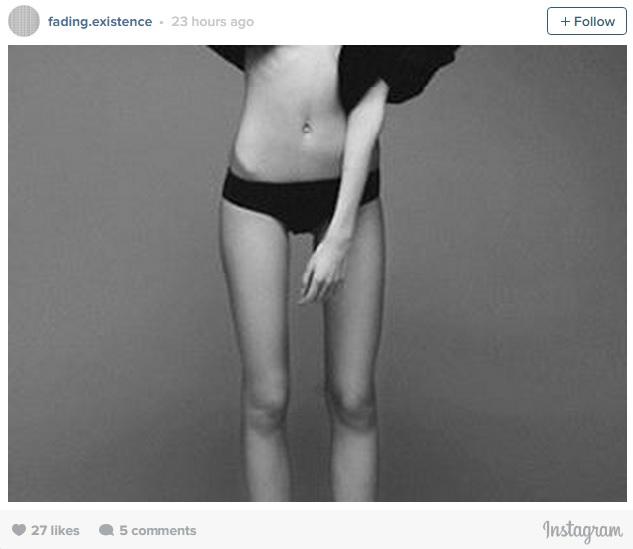
In Switzerland 20-24% of 15-year-old girls are engaged in some kind of weight-loss behaviour, according to a World Health Organization (WHO) report based a 2009-10 HSBC study, ‘Health Behaviour in school-aged children’. It was a similar picture in Germany, Austria and Italy, though the numbers were less in France (15-19%).
The WHO report notes: “the fact that self-perceived fatness is the most important factor leading to weight-reduction activities highlights the importance of promoting positive body image for young people across the weight spectrum”.
Particularly concerning young people, HPS says a person’s weight is not their primary concern, as focusing on weight loss can trap teenagers in a negative cycle. “We don’t do programmes to reduce body fat. The message [for an overweight girl] is to learn that it is fun to move and that she believes in herself,” says Testera Borrelli.
A critical eye for size
Five years ago HPS and PEP started workshops in schools. In 2014 1,578 schoolchildren took part in the workshops in eight Swiss cantons, so far in 2015 1,045 pupils have been to a session in six cantons.
“They show them trousers from different shops in the same size – sometimes they have an 8cm difference,” explains Testera Borrelli. The workshops also go into unrealistic sizes using a Barbie doll as a starting point. “Barbie could not live as a real person. Her neck could not support her breasts in real life,” she states.
The University of Bern carried out an evaluation of the workshops for the pre-schoolers. Those in charge of the playgroups and nurseries responded to a range of questions about how they incorporated the themes into the day. For example, fitting the recommended activities in as they went along or singing songs at lunchtime. Aggression and how to let out strong emotions was just one of the topics covered in the programme, but it was one that the playgroup leaders felt they needed to work on more frequently, based on the behaviour of children they had in attendance.
The leaders said the materials and ways of talking about how to handle different emotions and eating preferences were useful and allowed them to tackle some challenging situations.
It’s all part of starting a discussion with young people, making them aware of the diversity of body types and sizes that exist, and making teachers at all levels aware of the pressures on the teenagers and equipping them to open debate.

More
‘I want a six-pack like Ronaldo’
Bigger, stronger
A report released in August 2015 by Health Promotion Switzerland with psychologists at the Zurich University of Applied Sciences found out how 400 13-15-year-olds viewed their bodies. Only 35% of the girls were happy with how they looked; the figure was 56% among boys.
Data from the 2009-10 WHO report on school-aged children found that up to 49% of 13-15-year-old girls in Switzerland thought they were too fat. This was much less of a concern for boys.
Testera Borrelli says we need to ask the boys different questions. “In a lot of international studies there is always the same question, ‘do you think you are too fat?’” As boys are more likely to answer ‘no’, it gives the false impression that they are happy with their bodies, however they merely have different concerns. Data from the HPS study shows that 48% of boys in Switzerland wanted to be more muscular, 30% wanted to be considerably more muscular.
Apples and oranges
An awareness of how images are manipulated in the media and how clothing sizes differ is also needed, she argues. “You read a magazine and see only perfect bodies. You go to a shop and see only small clothes, it’s difficult to stay sane,” she adds. “If you are aware of the mechanisms [at work]…this is the best for your health.”
Perrson agrees that raising awareness is a big part of what needs to be done. He, like Testera Borrelli, is part of a European group called Appearance Matters, which shares research and information on body image. He spoke to swissinfo.ch from Iceland, where he was talking about the issue at a conference. “There were about 160 teachers here, who had thought it was really interesting and good because it increased their awareness of what is going on in the lives of their students.”
It takes more than workshops in schools though to bring about wider change. “If you go swimming, and then there is only junk food on sale when you leave, this is what you will eat,” says Testera Borrelli.
She wants more voluntary codes of conduct to protect young people, such as for plastic surgery on teenagers in Switzerland, something which is already subject to regulation in Austria. It would mean young people could only have cosmetic surgery under certain conditions, or after seeing a psychiatrist. There is currently no law in Switzerland governing a minimum age for cosmetic surgery, although as a general rule the Swiss society for plastic surgery will not operate on young women until they have completely finished growing.
“We want to promote different bodies,” says Testera Borrelli. There’s a wide range of bodies which are normal in real life. We don’t all have to be like Pamela Anderson.”

In compliance with the JTI standards
More: SWI swissinfo.ch certified by the Journalism Trust Initiative
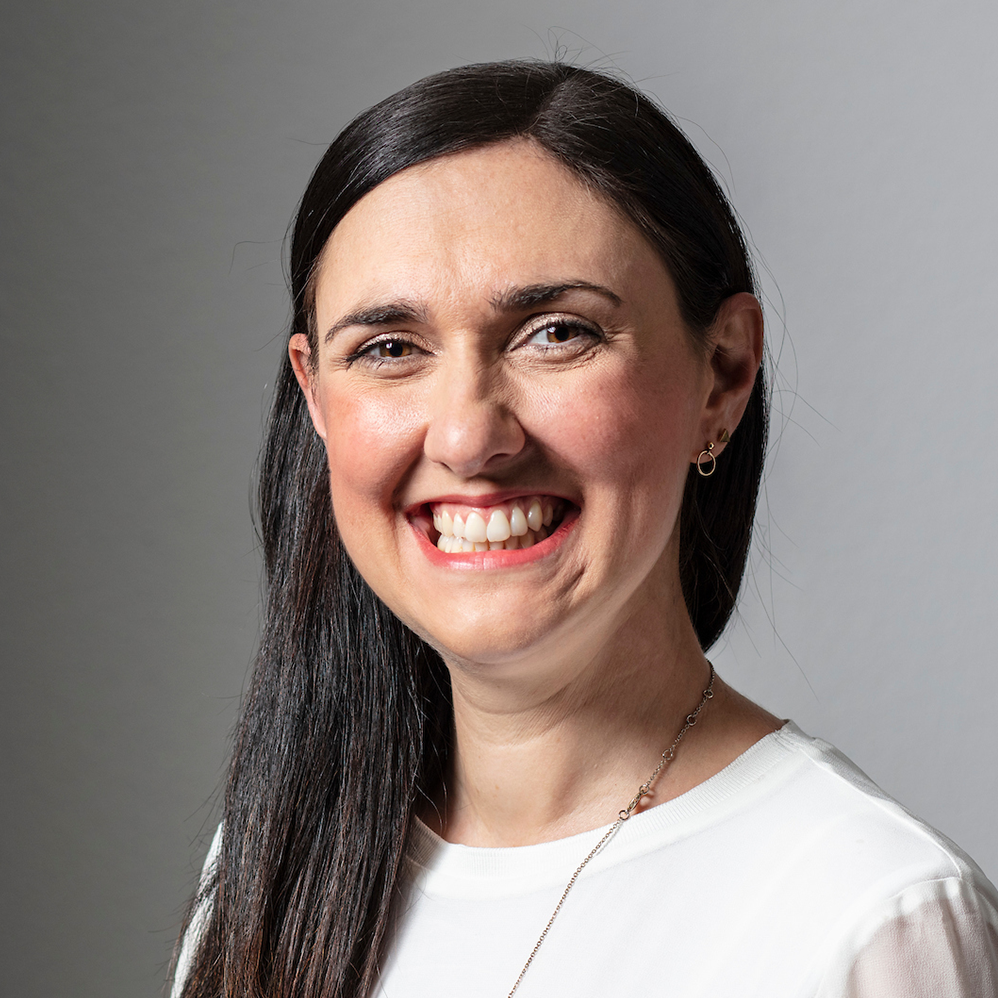
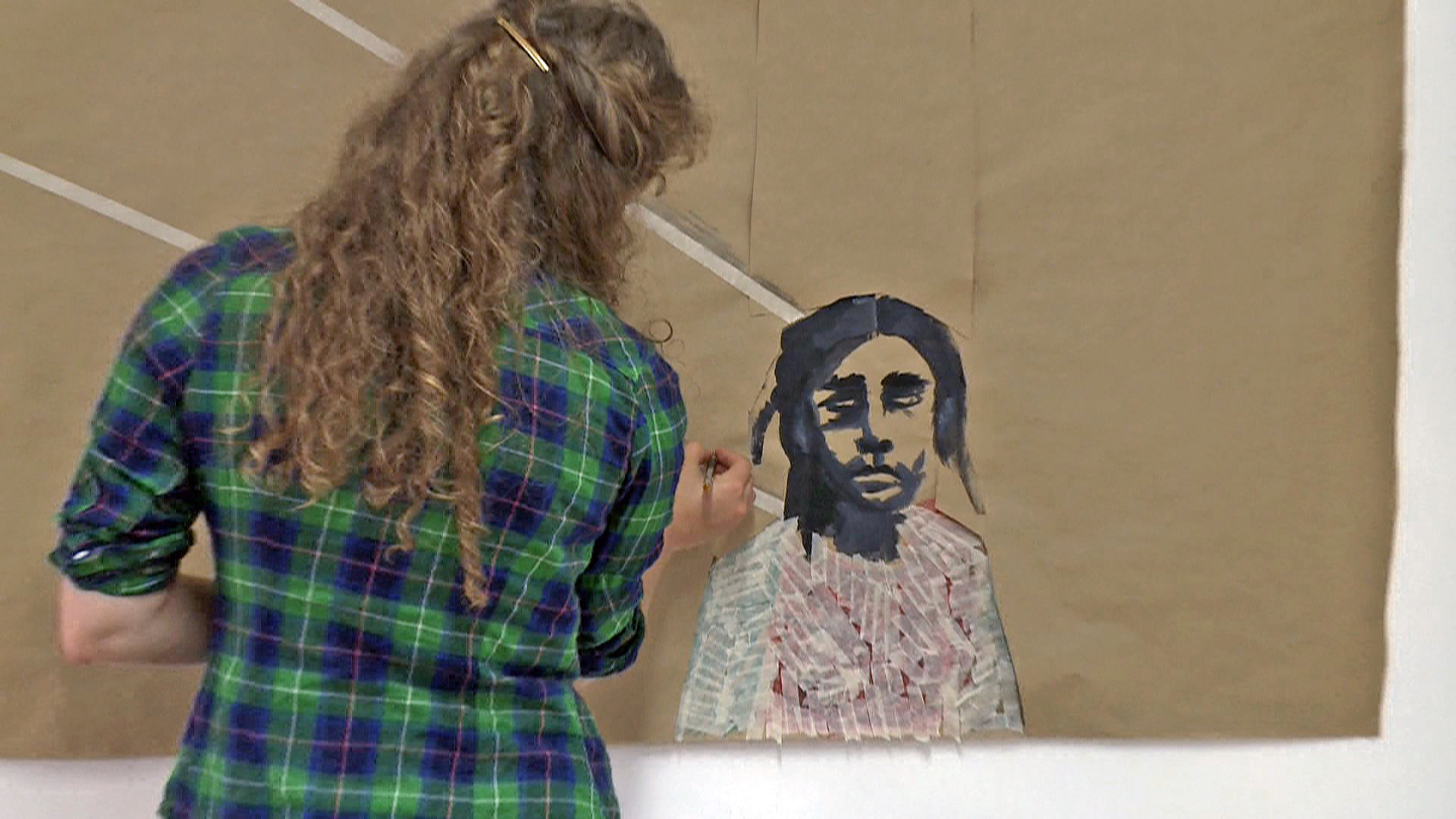
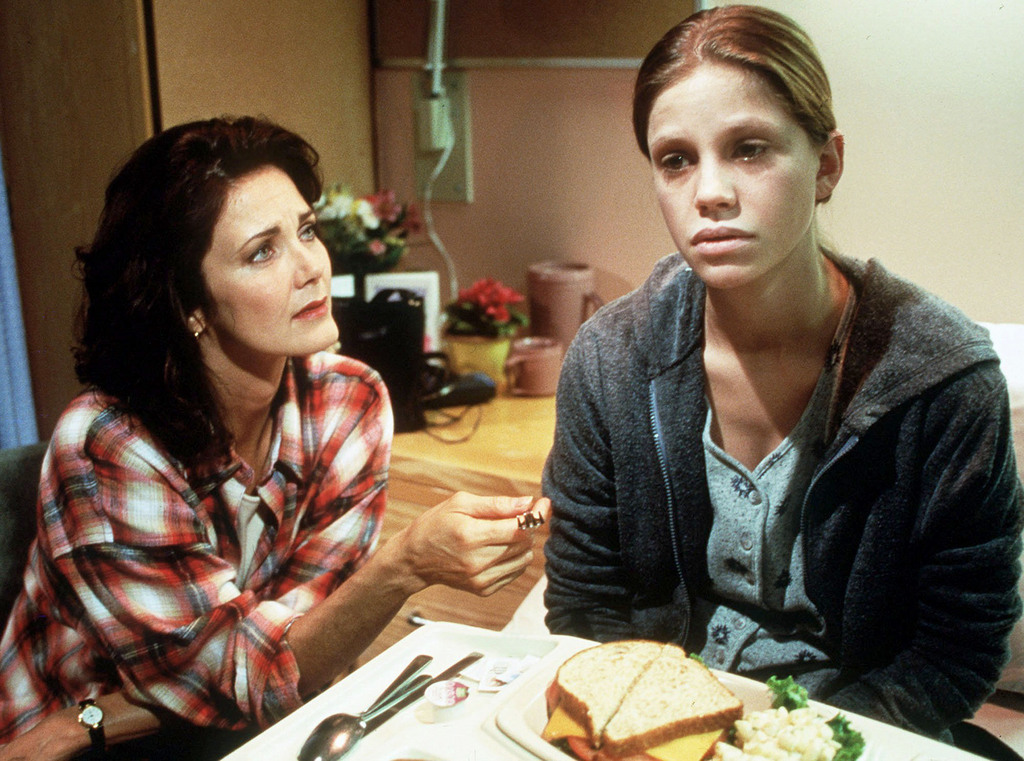
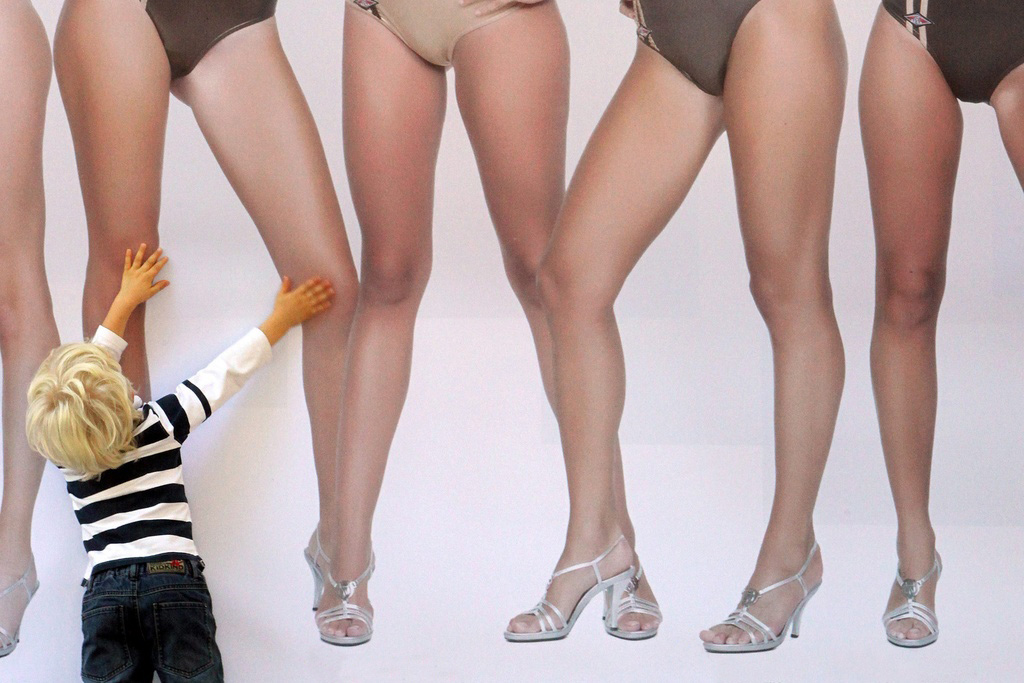
You can find an overview of ongoing debates with our journalists here. Please join us!
If you want to start a conversation about a topic raised in this article or want to report factual errors, email us at english@swissinfo.ch.